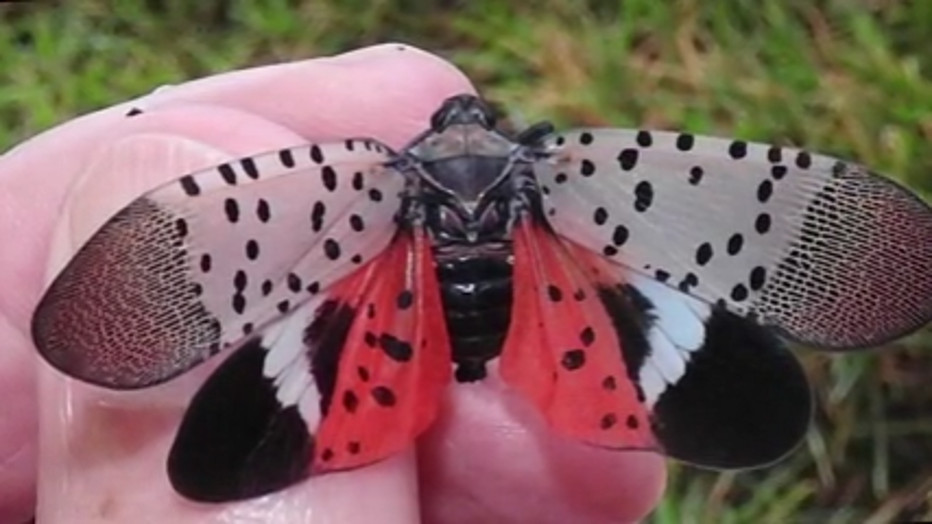Lanternfly infestation continues to plague Northern Virginia wineries
Is the Spotted lanternfly population decreasing?
Despite reports from experts that the population of the invasive Spotted lanternfly may be on the decline, some Virginia wineries are not celebrating just yet. FOX 5's Tisha Lewis has the story.
CLIFTON, Va. - Despite reports from experts that the population of the invasive Spotted lanternfly may be on the decline, some Virginia wineries are not celebrating just yet.
Paradise Springs Winery, which operates multiple locations across the commonwealth, is still grappling with a significant presence of the destructive insect.

Rob Cox, the winery's Director of wine-making, expressed skepticism about the reported decline, noting that the situation at their vineyards in Northern Virginia remains severe.
"We haven't seen a decrease at any of those sites. We've actually probably seen an uptick out in the Shenandoah site compared to last year," Cox said. "Loudoun County, we think, has it worse than anybody. Our colleagues down in Charlottesville aren't seeing it as bad as we are up here in the vineyards in Northern Virginia."
The Spotted lanternfly, native to Asia, is known for damaging crops, particularly grapevines, and has been a major concern for wineries like Paradise Springs. Cox added that while a colder and longer winter could help reduce the population, the current impact is far from over.
The financial toll on the winery has been significant, with Cox reporting a 10-percent hit to their bottom line due to the insect’s destruction of grapevines. The Spotted lanternfly is most active from May to November, and the winery is still dealing with its effects.
Meanwhile, other experts believe the population is starting to decline.
A University of Maryland epidemiologist told WTOP that natural predators, including birds, are starting to recognize the Spotted lanternfly as a food source.
Additionally, efforts across the Northeast region to control the population appear to be contributing to the insect's potential decrease.


